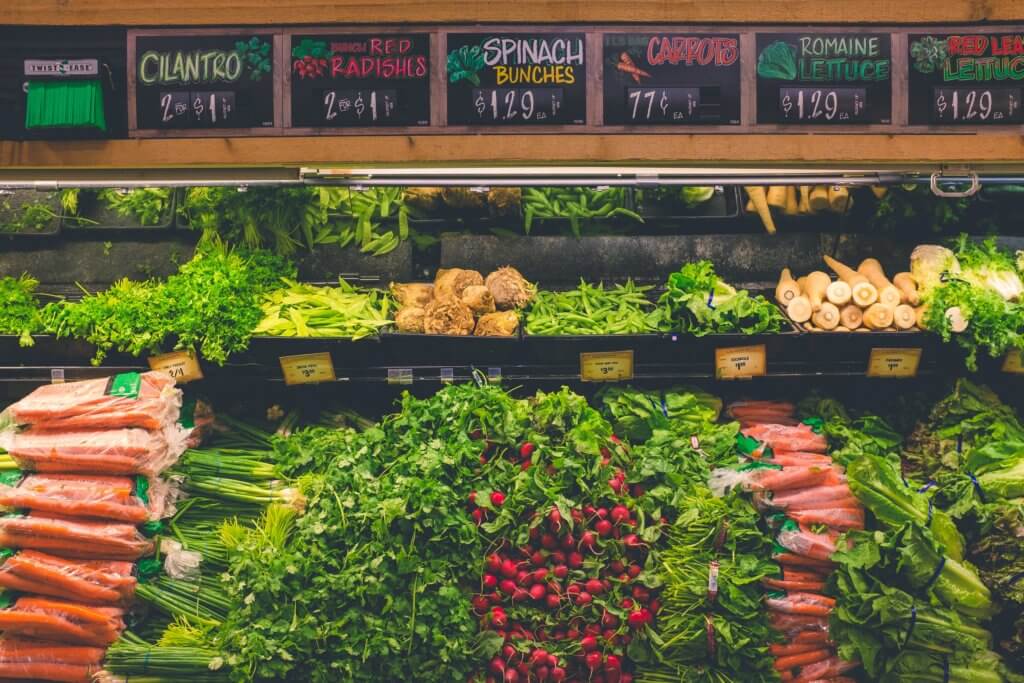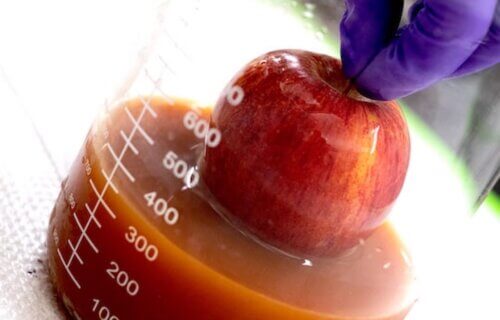HOUSTON — Your strawberries might start coming with some extra protein soon! Rice University materials scientist Muhammad Rahman has won a Partnerships for Innovation-Technology Translation award from the National Science Foundation to develop a sustainable, low-cost, egg-based coating to extend the shelf life of fruit and vegetables — with the ultimate goal of improving healthy food access.
“The goal of this project is to develop an eco-friendly, biodegradable, protein-based nanocomposite coating that can be applied to the surface of variously shaped fruits and vegetables,” says Rahman, a Rice assistant research professor in materials science and nanoengineering, in a university release. “The coating will extend shelf life by reducing produce spoilage, dehydration and microbial growth rates.”
The project expands on previous research from Rahman studying the use of egg-based coatings on perishable fruits. That 2020 study showed the product doubled the shelf life of bananas and other fruit. The findings were so strong that in 2021, he and his team member Pulickel Ajayan won the Sustainable Technologies/Future Energy category in the Tech Briefs Create the Future competition. Now, after winning the award from the National Science Foundation, the coating can reach new heights.
“This award will allow me to move this project from lab- to pilot-scale. Food-coating practices currently rely on waxes, and a protein-based coating could really be a game-changer. I think Rice is a great place to be if you’re trying to build bridges between what happens in the lab and real-world applications.”

The coating may save the planet from food waste and global warming
Fruits and veggies spoil very quickly, quicker than any other food in fact. According to the U.S. Department of Agriculture, over half of all produce ends up in a trash bin. Taking things further, in 2010, officials estimated that each person generates roughly 200 pounds of food waste every year. In total, that’s worth over $160 billion.
Food waste is a detriment to the environment too, releasing a significant amount of greenhouse gas emissions into the atmosphere. The Environment Protection Agency released a report in 2021 estimating that the carbon emissions released from food waste and loss in the United States every year are equivalent to around 18 percent of the amount of yearly emissions from American power plants.
“The broader hope for this project is to improve the food industry carbon footprint and sustainability,” concludes Rahman. “I strive to align my research with the challenges of this critical, historic moment that confronts us with the urgent need to address anthropogenic climate change and find real-world solutions for a more sustainable future.”


There are people with egg allergies why would we coat foods that they eat with this. The amounts of anaphylaxis reactions could be unimaginable. Why?
I try not to die on a daily basis due to my food allergies, including an egg allergy. This doesn’t help. Keep it in your lab, k thanks
This affects all people with egg allergies when they rely on fruits and veggies and adding this takes away food they can no longer eat which is currently a safe product
I hope they stop and think about the kids and adults with a severe egg allergy who already have a tough time finding things to eat. Fruit and vegetables are all my egg allergy 2yo eats without worry.
Can this ciatimg be washed off to be completely removed without damaging the product? This scares me for those that have an egg allergy like my daughter. Egg is one of the top 6 allergens.
This is very disturbing that this may occur. My daughter is allergic to eggs and has limited food that is safe and if this product gets used in the future it could be life threatening for my daughter to eat some of her favorite fruits.
This is what nightmares are made of. Egg is a top allergen. My son is severely allergic to egg as well as many other things so we rely on fresh produce in our diet. So if this becomes a thing, we could not safely eat an apple (or who knows what else they try) without risking anaphylaxis? This is a horrible idea. Plus this impacts so many people who are vegan!
As this is a great step to helping with waste it’s very disappointing for people with egg allergies and for vegans. My daughter has a egg allergy and it is already difficult finding foods that don’t contain egg. Now I have to worry if produce could cause an reaction? Something that is healthy food and easy to give a child can now be dangerous.
This is a terrible idea. Egg is a top allergen and this would pose a huge threat to those who are allergic!
This is a very bad idea considering the amount of people who have egg allergies and for those who are vegan.
Absolutely awful idea. Not great for people especially children with severe egg allergies and what about vegans? I really really hope this doesn’t come to pass or egg allergic children can cross fresh fruit off their already limited list of safe foods.
My son was deathly allergic to eggs for many years. One thing I could always count on being safe were the fresh fruits and vegetables at our local grocery store. Now what I’m hearing is food allergy families may soon have even less safe foods accessible to them. Fruit and vegetables, the healthiest things in stores for kids to eat, and many children wouldn’t even be able to eat those anymore. While this is amazing technology, the implications for the food allergy community are serious.
How upsetting for people like myself with an egg allergy! Even if one of these egg-coated pieces of fruit were to be touching another that wasn’t coated, I would have an allergic reaction. Very very scary! I really hope that they find another path because trying to find safe foods is already scary enough…
I am severely allergic to eggs and this is concerning…
As a parent of a son with severe food allergies, one being egg, this would be devastating. One guarantee we have of safe food is fresh fruits and vegetables. To have those be a questionable source of a life threatening allergic reaction would be absolutely terrible. We are already limited in food choices as is.
Why and how can this even be a thought? Let’s add one of the top food allergens to food that does not naturally contain it. Mind boggling! Yes this could save the planet for waste but at the expense of many human lives that will be lost due to deadly anaphylactic reactions due to being allergic to eggs.
One should not have to worry or be concerned that fresh food have a top allergen coated on it.
Being that egg is a top allergen, I’m curious as to the plan to label such coated foods.